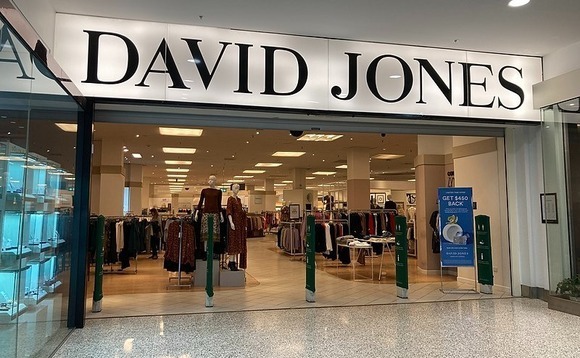
Deal focus: Anchorage gets Aussie icon for a song

Anchorage Capital Partners has acquired David Jones, a longstanding and beloved Australian department store chain, for one-fourth the cost of recent renovation work at a single location
South Africa's Woolworths Holdings acquired Australian department store chain David Jones in 2014 for AUD 2.1bn (USD 1.4bn) and sold it last month to local private equity firm Anchorage Capital Partners for about AUD 100m.
The latest transaction doesn't include the real estate component, which Woolworths valued at AUD 612m at the time of its acquisition and has almost completely sold off. The last freehold land from this portfolio is David Jones' flagship location in Melbourne. Anchorage has a 10-year lease at the site, and Woolworths remains the landlord, but it is expected to sell down within a year.
Many interpreted the company's evaporating valuation as another sign of the death spiral of the department store as a concept in an increasingly e-commerce-driven world. But it must also be considered that almost every strategic move during Woolworths' ownership looks like a major mistake in hindsight.
David Jones is a prestige brand and a preferred retailer of products from the likes of Alexander McQueen, Versace, Dolce & Gabbana, Stella McCartney, and Chloé. Indeed, founded in 1838, it is the oldest department store in the world operating under its original name. This didn't stop Woolworths from trying to sell David Jones-branded discount food in BP petrol stations.
"I think the death of the department store is being called too early," said Simon Woodhouse, a managing partner at Anchorage who oversaw the firm's investment in Brand Collective, a diversified apparel retailer that built out an omnichannel model before being exited last year.
"This business had been for sale for a long time and had gone through a number of sale processes. You have a bruised seller that wants to make sure it gets done this time."
More specifically, Woolworths had made plans to exit David Jones three years ago, and surprisingly used this time to pump AUD 400m into a renovation of the store's main Sydney location. An informal sale process began 18 months ago. A more formal process started nine months ago, which led to exclusive discussions with Anchorage.
Anchorage's confidence in the department store as a business model is supported by David Jones' ongoing post-pandemic recovery. The company posted a net loss of AUD 126m in 2020 but rebounded to a profit of AUD 83m on a statutory basis the following year. "We're seeing really good foot traffic numbers coming back to physical retail," Woodhouse said.
The plan is to optimise supply chain networks, enhance the brand portfolio, deepen relationships with some brands, ramp up a data-driven loyalty offering, and lift online sales from about 20% of business currently to 25% in the near term. Online was only 5% in 2019.
It's worth mentioning that Anchorage helped Brand Collective build up its online business from 5% to 20% during a 6.5-year hold. But the private equity firm is going to let management run the show.
"This is all about continuity of [CEO Scott Fyfe] and his team and their plan," said Beau Dixon, a partner at Anchorage who co-led the deal with Woodhouse, referring to David Jones' omnichannel overhaul dubbed Vision 2025+.
"The starting premise is full support for this plan. We're not looking to change anything. We've bought into the plan. We've immersed ourselves in it."
Much of Vision 2025+ is digital. For example, a long-planned and overdue app launch was immediately greenlit by Anchorage to the delight of management. But there will also be a significant component of sensible layout and branding rethinks. Basement food halls and misadventures in product positioning are out.
"At the Bondi Junction David Jones, you've got women's beauty leading into men's fashion. So, after you get your makeup, you can get your suit," said Woodhouse. "There's no flow at all. Those are the kinds of things we'll be looking to do."
David Jones currently has 43 locations across Australia and New Zealand, three of which were slated for closure by 2026 under Woolworths ownership. Those closures will proceed, but no more are planned.
Meanwhile, there is scope for new openings. A somewhat demoralising merger with long-time rival Myers, mooted in the midst of the pandemic slowdown, is categorically off the table.
"It's about respecting the brand," Dixon said of taking ownership of a household name. "There's a reason why it's been around for the time period it has been. It's about us adding value to that and enhancing it, and that's got to start with knowing the customer and supporting the management team on creating better customer lifetime value. That's really what it's all about."
Latest News
Asian GPs slow implementation of ESG policies - survey
Asia-based private equity firms are assigning more dedicated resources to environment, social, and governance (ESG) programmes, but policy changes have slowed in the past 12 months, in part due to concerns raised internally and by LPs, according to a...
Singapore fintech start-up LXA gets $10m seed round
New Enterprise Associates (NEA) has led a USD 10m seed round for Singapore’s LXA, a financial technology start-up launched by a former Asia senior executive at The Blackstone Group.
India's InCred announces $60m round, claims unicorn status
Indian non-bank lender InCred Financial Services said it has received INR 5bn (USD 60m) at a valuation of at least USD 1bn from unnamed investors including “a global private equity fund.”
Insight leads $50m round for Australia's Roller
Insight Partners has led a USD 50m round for Australia’s Roller, a venue management software provider specializing in family fun parks.







